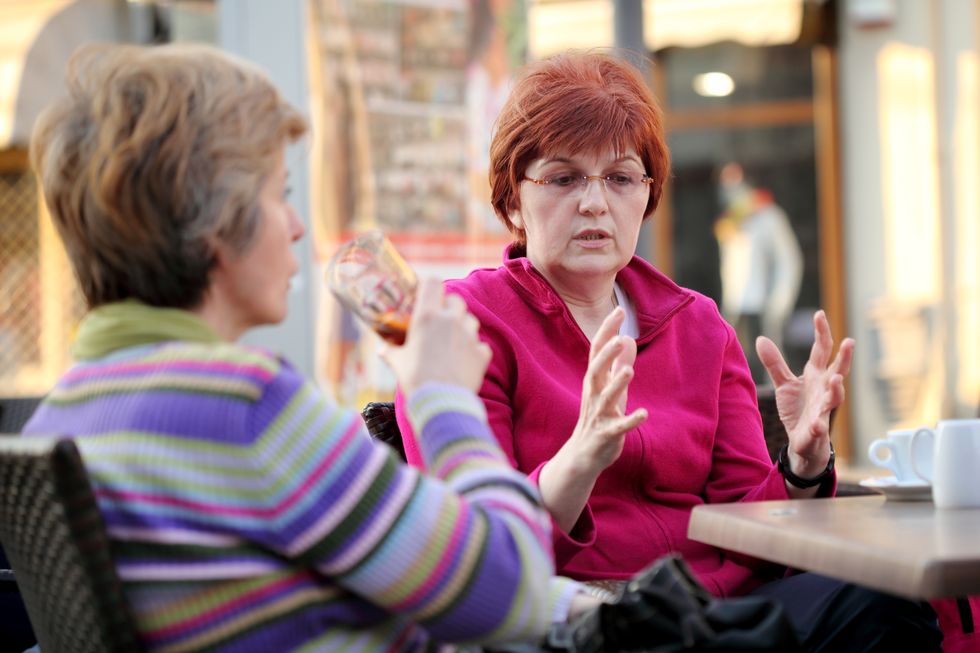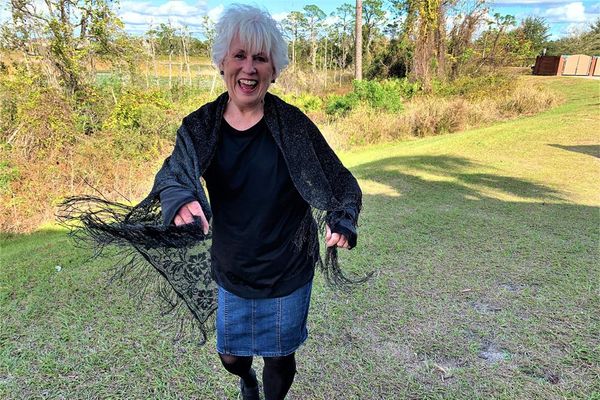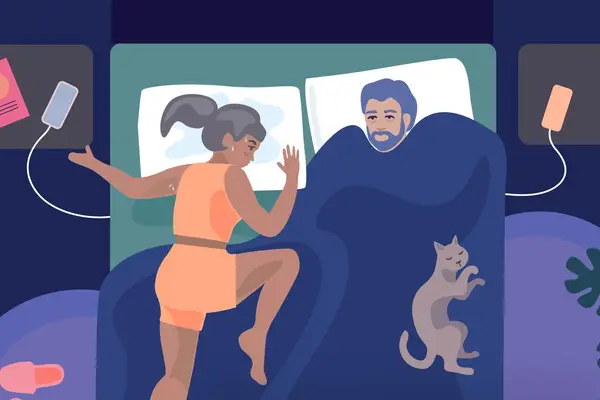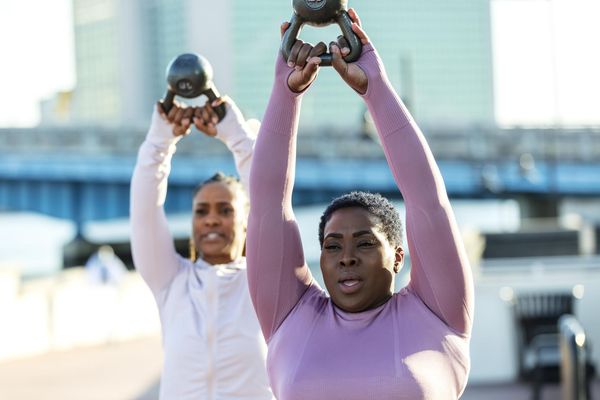It's interesting how conversations with friends and contemporaries change, taking on new meaning and urgency once we're in this so-called midlife.
It feels like not too long ago that our conversations focused on babies—things like how exhausted we were from their constant needs or how difficult it was to get them to sleep through the night. "No one ever walked down the aisle in diapers, sucking on a pacifier," a wiser-and-older friend used to assure me when I bemoaned my children's lack of progress in both departments. Of course, I knew that was true, but it sure didn't feel like it at the time.
And now, if we're lucky, some of us—those same friends who held each other up during difficult times—sit together again. There's nothing as precious as friends you've "grown up" with through the years. Only now the conversations usually focus on a different topic: our health.
One dear friend's husband, as I write this, is in surgery to have a cancerous kidney removed. (It's tough to concentrate waiting for the text telling me all went well.) Another friend's funeral was one month ago, and we still weep for his—and his family's—tragic loss from an especially aggressive form of cancer.
As baby boomers, we are all approaching these "vulnerable years." We may be ushering in newfound freedom, happiness and self-confidence, but along with that we are facing more urgent health concerns. I'm not saying it's all downhill from here, but, instead, that the (health) terrain has become a bit bumpier, circuitous, challenging and populated.
Here are some of the more common things happening to our health after 50:
Heart disease. It's not just a "man's disease." Heart disease kills about the same number of men and women in the United States each year. Yet only 54 percent of women are aware that it's the number one cause of death for women. Reduce your risk by staying at a healthy weight; knowing and controlling your blood pressure, cholesterol and triglycerides; limiting alcohol to one drink per day; making healthy food choices; exercising; not smoking; and lowering your stress level.
Stroke. It's the third leading cause of death for women (compared with men, for which it's the fifth leading cause) and kills twice as many women each year as breast cancer. Each year there will be 55,000 more women than men who suffer a stroke. Acting quickly can save lives, so know the symptoms, which come on suddenly: numbness or weakness of the face, arm or leg (especially on one side of the body); trouble seeing in one or both eyes; trouble walking, dizziness, loss of balance or coordination; and severe headache with no known cause. Lower your risk by following all the suggestions for reducing heart disease, and add these: keep your blood sugar under control, and if you suffer from atrial fibrillation, get it treated.
Gallstones. Bile, a fluid that helps rid your body of waste, can harden into chunks ranging in size from a grain of sand to a golf ball. When they get stuck on the way out of your gallbladder, these stones can cause severe pain in the upper body region or behind your belly button. You're at increased risk if you're obese, don't exercise, have Crohn's disease or diabetes. Eating regularly, getting plenty of exercise and maintaining a healthy weight can help prevent this painful condition.
Broken bones. Among the many reasons to maintain good balance is that as you age, your bones become more brittle and are more likely to break. A fall can be catastrophic, especially to someone with osteoporosis. Protect yourself from brittle bones by exercising regularly, eating foods high in calcium, getting enough vitamin D, avoiding certain medications that can weaken your bones and/or cause falls, not smoking and limiting alcohol.
Detached retina. The retina, a light-sensitive layer in your eye that signals what you see to your brain, can lift or pull away from the outer wall and cause permanent vision loss if it's not promptly treated. Sometimes, small areas of the retina tear and can lead to total detachment. Symptoms include a sudden or gradual increase in floaters (little specks or "cobwebs" that float around in your field of vision); light flashes in the eye; or the appearance of a curtain over your field of vision.
Some other health conditions that are more likely to occur after 50 include vertigo, kidney stones, pneumonia, spinal stenosis, gout, pulmonary embolism, acute pancreatitis and aneurysm. Knowledge is power, and it's my hope that by knowing some common health problems, you can empower yourself and keep yourself strong and healthy for as long as possible.
This post originally appeared on mysocalledmidlife.net.







